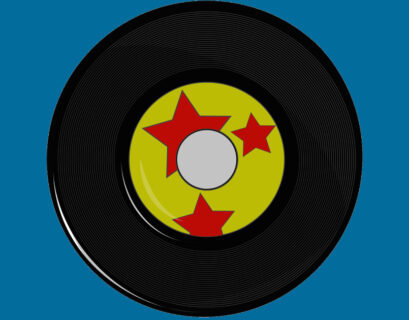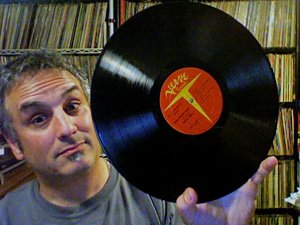It’s the time of year for saving money!
I don’t think Rudy Van Gelder was 100% perfect as a recording and mixing engineer.
There, I said it…
Don’t get me wrong and there is no disrespect here as I know he’s been behind some of the best sounding jazz records in music history. But, there are a number of instances where his efforts have baffled me and that is my launch pad for this review of the somewhat recent Blue Note Tone Poet reissue of Andrew Hill’s Black Fire album.
For those not in the know, there is a general belief among record collectors and jazz aficionados in particular that Mr. Van Gelder could do no wrong when it came to recording and mastering. He did do mostly brilliant work, but every now and then listening to one of his mixes you wonder: what is going on here?
One of my favorite albums by Bill Evans — the very under-rated and generally overlooked 1966 album he did with the orchestra called Bill Evans Trio With Symphony Orchestra — is a beautiful album that sounds underwhelming. Particularly, the piano sounds like it was recorded in a cardboard box.
It is a very odd recording and I own many versions of it including on: CD, French vinyl (Stereo), West and East Coast domestic US DJ pressings (yellow and white label pressings, in Mono) and even an SHM CD! Of them all, oddly enough the French Stereo pressing seems to sound the best thus far.
I can imagine that RVG had certain challenges when recording that album and it is still a great record, but it sure could use a remix!
All that said, I’ll switch over to Mr. Hill’s album which I had heard quite a bit about on-line. Over the years I haven’t had much luck finding original copies of his records — I only had two prior to this one — so being able to get some of these rare early releases was very appealing. The music itself sounds fine and quite interesting so I have no problem there. And in the tradition of the Tone Poet series, the production values are exemplary.
But, the recording itself feels somehow compromised.
Now, I have seen some posts on forums about pitch issues on this pressing. I’ll have to go back to listen more closely for that. But my issue is different and perhaps more basic: it sounds like the bassist was intentionally turned down in the mix.
I hope to find a reasonably priced Mono edition of the album at some point to see if that is any better — I imagine it might be. But on the Stereo version there’s very little distinct bass activity happening and what you can hear of that instrument feels quite distant in the mix most of the time.
I can only speculate as to why…
Perhaps it was a mistake that snuck out and perhaps Mr. Hill wasn’t important enough of an artist at that point in time to warrant a recall/repress. Perhaps they rushed it out too quickly.
Curiously, checking on the record collector’s marketplace website Discogs, there seem to be far more Stereo copies than Mono so perhaps it was a mistake assuming Stereo was the dominant version released. There are only three used copies of Black Fire in Mono for sale right now on Discogs and the starting prices are at more than $200!
This concept that a Mono mix might be better than Stereo is not new, mind you. Fans of The Beatles have known for years that the Mono mixes of the original albums were preferred not only because the band worked on them most, but because they sound the best — the drums and bass are generally much punchier in the mix!
Thus, I wonder if the Mono mix of Black Fire is the superior version that should have been used for the Tone Poet reissue?
I mean, just listen to the track “Cantarnos” where there is an extended bass solo — even there it is challenged by the drummer’s cymbals which are much louder in the mix.
In defense of Mr. Van Gelder, perhaps he designed this mix with a certain amount of compression planned in the disc mastering stage? Perhaps this new edition was mastered too quietly? I did have to turn it up quite a bit to get some bass feeling out of the recording, but by then the other instruments were uncomfortably loud.
Listening to a fan made post of the track “Pumpkin” from 2009, the bass sounds a bit more prominent here for some reason — different mastering for sure, but perhaps some EQ was applied to that version along the way. The 2003 CD quality remasters are up on Qobuz (click here) and Tidal (click here) and the bass sounds on those streams do sound fuller, a bit more present than in the new reissue streams. There are 192 kHz, 24-bit and 96/24 versions up on each of those streaming services for you to explore.
The question remains: what to do? Well, if you don’t already own it and are seeking more definitive recordings of the artist, you might want to hold off on this one until it gets remixed or re-remastered. Or, perhaps a Mono reissue will emerge that might have the bass a bit more upfront in the mix.
To that, if I come across a Mono copy in the near future I’ll be sure to update this review accordingly to let you know what I hear. Likewise, if you have any thoughts on this, please let us know in the comments section below.





















